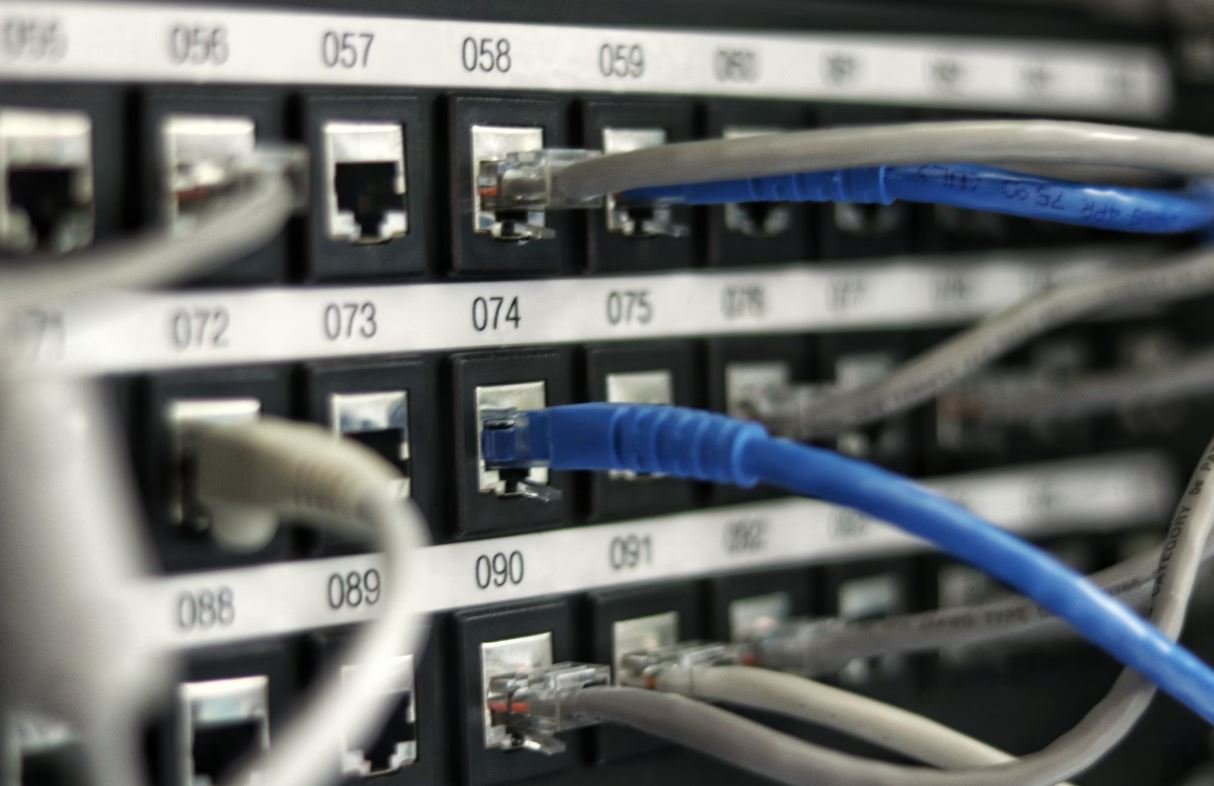Are Tesla Good Cars?
Tesla, the renowned electric vehicle manufacturer, has gained significant popularity in recent years. However, many potential car buyers wonder, “Are Tesla cars actually good?” In this article, we will explore the various aspects of Tesla vehicles to help you determine whether they are a good choice for your next car.
Key Takeaways:
- Tesla cars are highly regarded for their impressive electric range.
- These vehicles offer exceptional acceleration and performance.
- Tesla’s Autopilot feature provides advanced driver-assistance capabilities.
- The Supercharger network allows for convenient and rapid charging.
- Tesla vehicles have received high safety ratings.
Performance and Range
Tesla cars are known for their remarkable performance and long electric range. The advanced electric drivetrain and innovative battery technology contribute to their exceptional acceleration, with some models capable of reaching 0 to 60 mph in under 3 seconds. *This impressive feat is made possible by Tesla’s renowned electric drivetrain technology.*
Tesla’s Model S Plaid, for example, boasts a range of over 390 miles on a single charge.
Moreover, Tesla’s continuous effort in expanding their Supercharger network makes long-distance travel more convenient by providing rapid-charging stations strategically located worldwide. With the availability of fast charging, range anxiety becomes less of a concern, making Tesla a practical choice for daily commuting and road trips alike.
With Tesla, range anxiety becomes a thing of the past.
Advanced Driver-Assistance Features
Tesla vehicles are equipped with Autopilot, an advanced driver-assistance system that enhances safety and convenience. Autopilot utilizes various sensors and cameras to enable features such as lane centering, adaptive cruise control, and automatic parking.
Autopilot allows for a more stress-free driving experience with its semi-autonomous capabilities.
While Autopilot does not make Tesla cars fully autonomous, it provides a remarkable driving experience by easing the burden of certain tasks and reducing driver fatigue.
Tesla’s Autopilot enables a more relaxed driving experience, giving drivers the opportunity to enjoy the journey.
Safety
Tesla places great emphasis on safety, which is reflected in the high safety ratings their vehicles receive. The extensive use of aluminum and advanced steel alloys in their construction ensures robust crash protection.
The Tesla Model 3, for instance, earned a perfect 5-star safety rating from the National Highway Traffic Safety Administration (NHTSA).
Furthermore, Tesla continuously introduces software updates to enhance safety features and address potential concerns, making their cars even more secure with time.
Tesla’s commitment to safety is evident through their strong focus on continuous improvement and innovation.
Comparison of Tesla Models
| Model | Range (miles) | 0-60 mph (seconds) |
|---|---|---|
| Model 3 | 250+ | 3.1 |
| Model Y | 326+ | 4.8 |
| Model S | 390+ | 1.99 |
Tesla Supercharger Network Expansion
Tesla’s rapid expansion of the Supercharger network ensures that charging is easily accessible for Tesla owners. As of 2021, there are over 25,000 Superchargers across more than 2,700 Supercharger stations worldwide.
Tesla’s Supercharger network allows for fast and convenient charging during long-distance journeys.
The Supercharger V3 technology, introduced in 2019, provides even faster charging speeds, allowing drivers to replenish their vehicle’s battery rapidly.
With Supercharger V3, Tesla owners can spend less time charging and more time on the road.
Tesla Vehicle Safety Ratings
| Model | NHTSA Safety Rating |
|---|---|
| Model 3 | 5 stars |
| Model Y | 5 stars |
| Model S | 5 stars |
The Verdict
Overall, Tesla cars offer exceptional performance, long electric range, advanced driver-assistance features, and a strong emphasis on safety. With continuous updates and expansion of the Supercharger network, Tesla aims to provide excellent driving experiences while simultaneously reducing carbon footprints. Whether you prioritize sustainability, cutting-edge technology, or a thrilling driving experience, Tesla remains a compelling choice.

Common Misconceptions
Performance
One common misconception about Tesla cars is that they lack performance compared to traditional gasoline-powered vehicles. However, this is not true:
- Tesla vehicles, such as the Model S and Model 3, can accelerate from 0 to 60 mph in just a few seconds, rivaling high-performance sports cars.
- Tesla’s electric motors provide instant torque, resulting in quick and smooth acceleration.
- Tesla’s Ludicrous Mode allows for even faster acceleration, making them stand out in terms of performance.
Range
Another misconception is that Tesla cars have limited range, making them unsuitable for long-distance travel. However, this is not accurate:
- Tesla vehicles have a range that varies depending on the model and battery capacity, but they can generally achieve several hundred miles on a single charge.
- Tesla’s Supercharger network provides fast-charging stations strategically located throughout many countries, allowing for convenient long-distance travel.
- With the availability of home charging options, most Tesla owners can easily recharge their vehicles overnight, providing them with a full range each day.
Reliability
Many people falsely believe that Tesla cars are unreliable and prone to frequent breakdowns. However, this is not the case:
- Tesla vehicles have fewer parts compared to traditional cars, reducing the chances of mechanical failures and breakdowns.
- Tesla’s software updates can fix many issues remotely, improving reliability and resolving potential problems without the need for a physical visit to a service center.
- Tesla cars come with an 8-year/unlimited-mile battery and drivetrain warranty, providing peace of mind to owners.
Price
It is often assumed that Tesla cars are overly expensive and only affordable for the wealthy. However, this belief does not consider the following:
- Tesla offers models at various price points, with the more affordable Model 3 being their entry-level vehicle.
- When comparing overall costs with gasoline-powered cars, Teslas offer savings on fuel and maintenance expenses over time.
- Tax incentives and rebates offered by governments for purchasing electric vehicles can help reduce the purchase price and make Teslas more accessible.

Introduction
Tesla, the renowned electric vehicle manufacturer founded by Elon Musk, has revolutionized the automotive industry with its cutting-edge technology and sustainability focus. This article delves into various aspects that contribute to Tesla’s reputation and explores if they truly live up to the hype.
Innovation:
Tesla’s commitment to innovation is evident in their vehicle lineup. They were the first automaker to introduce over-the-air software updates, enabling continuous improvements and adding new features to their vehicles.
| Innovation | Fact |
|---|---|
| Autopilot Technology | Tesla’s Autopilot allows for adaptive cruise control, lane centering, and self-parking capabilities. |
| Electric Range | Tesla vehicles have the longest electric ranges, with the Model S achieving up to 375 miles per charge. |
| Supercharging Network | Tesla’s extensive Supercharging network enables long-distance travel with convenient and rapid charging. |
Performance:
Tesla vehicles are renowned for their exhilarating performance, thanks to their electric drivetrain and instant torque delivery.
| Performance | Fact |
|---|---|
| Acceleration | The Tesla Model S Plaid boasts the quickest acceleration of any production car, reaching 60 mph in just under 2 seconds. |
| Top Speed | The Tesla Roadster, currently in development, is expected to have a top speed exceeding 250 mph. |
| Handling | Tesla vehicles, equipped with low centers of gravity due to the battery placement, offer exceptional handling capabilities. |
Safety:
Tesla places great emphasis on safety, consistently aiming to achieve the highest safety ratings and implementing advanced features.
| Safety | Fact |
|---|---|
| Crash Tests | Tesla’s Model 3 has received the highest safety ratings from multiple organizations worldwide, including Euro NCAP and NHTSA. |
| Autonomous Emergency Braking | Tesla vehicles come standard with advanced safety systems, including autonomous emergency braking to mitigate collisions. |
| Active Safety Features | Tesla’s vehicles are equipped with features like forward collision warning, blind-spot monitoring, and traffic-aware cruise control. |
Charging Infrastructure:
Tesla’s Supercharger network addresses one of the major concerns associated with electric vehicles – charging accessibility and speed.
| Charging Infrastructure | Fact |
|---|---|
| Rapid Charging | Tesla Superchargers provide up to 250 kW of power, enabling quicker charging times compared to other electric vehicle charging networks. |
| Global Network | Tesla’s Supercharger network spans across numerous countries, making long-distance electric travel more feasible. |
| Expansion Plans | Tesla plans to continue expanding its Supercharger network, adding more stations globally to enhance charging convenience for owners. |
Customer Satisfaction:
Tesla owners consistently express high levels of satisfaction with their vehicles, indicating a positive ownership experience.
| Customer Satisfaction | Fact |
|---|---|
| Referral Program | Tesla’s referral program, rewarding existing owners for referring new customers, demonstrates the customer satisfaction and loyalty fostered by the brand. |
| Owning Multiple Teslas | Many Tesla owners become repeat customers, owning multiple Tesla vehicles and showcasing their confidence in the brand. |
| Social Media Engagement | Tesla’s active and engaged online communities, with countless fan pages and forums, are a testament to the enthusiasm of their customer base. |
Environmental Impact:
Tesla’s electric vehicles contribute to a reduced carbon footprint and help combat climate change by eliminating tailpipe emissions.
| Environmental Impact | Fact |
|---|---|
| Zero Tailpipe Emissions | Tesla vehicles produce zero direct tailpipe emissions, providing a green transportation alternative. |
| Emissions Saved | According to Tesla, their vehicles have saved over 22 million metric tons of CO2 emissions worldwide, equivalent to planting more than 521 million trees. |
| Renewable Energy Integration | Tesla promotes renewable energy integration by offering residential solar panels and energy storage solutions through their sister company, SolarCity (now Tesla Energy). |
Autonomous Driving:
Tesla’s Autopilot system paves the way for future autonomous vehicles, enhancing convenience and potentially reducing accidents.
| Autonomous Driving | Fact |
|---|---|
| Mileage Contributions | Tesla’s vehicles autonomously drive millions of miles, collecting valuable data to improve their self-driving capabilities. |
| Full Self-Driving Capability | Tesla aims to achieve full self-driving capability through regular software updates, eventually allowing their vehicles to operate without human intervention. |
| Autopilot Safety | Studies have shown that Tesla’s Autopilot reduces accidents, with some estimates suggesting a 40% reduction in crashes compared to conventionally driven vehicles. |
Cost of Ownership:
While Tesla vehicles may have a higher upfront cost, factors such as fuel savings and lower maintenance costs can make ownership more affordable in the long run.
| Cost of Ownership | Fact |
|---|---|
| Fuel Savings | Electricity costs significantly less than gasoline, resulting in substantial fuel savings for Tesla owners over time. |
| Maintenance | Tesla’s electric drivetrains require less maintenance than internal combustion engines, reducing costs associated with oil changes and other traditional maintenance tasks. |
| Longevity | Tesla’s high-quality construction and meticulous engineering contribute to their vehicles’ longevity, potentially reducing the need for frequent vehicle replacements. |
Conclusion
Tesla has undeniably made significant strides in the automotive industry, continuously pushing the boundaries of technology and sustainability. With groundbreaking innovations, impressive performance, top-notch safety features, and a robust charging infrastructure, Tesla vehicles have proven to be more than just good cars. Their positive impact on the environment, commitment to customer satisfaction, and vision for autonomous driving further solidify their position as trailblazers in the industry. As Tesla continues to refine their vehicles and expand their product portfolio, their commitment to excellence and innovation shows no signs of slowing down.
Frequently Asked Questions
Are Tesla cars reliable?
Yes, Tesla cars have proven to be highly reliable. They are equipped with advanced technology and undergo rigorous testing to ensure top-notch performance and safety.
Do Tesla cars have good range?
Absolutely! Tesla vehicles come with impressive electric ranges. Their models, such as the Model S, Model 3, and Model X, offer different range options to cater to various driving needs, making them ideal for both short commutes and long-distance traveling.
What are the benefits of owning a Tesla?
Owning a Tesla comes with numerous benefits. Some advantages include lower operating costs compared to traditional combustion engine vehicles, access to Tesla’s extensive Supercharger network for convenient long-distance travel, and the ability to enjoy cutting-edge autonomous driving features. Additionally, Tesla cars have a positive environmental impact due to their zero emissions.
Are Tesla cars safe?
Yes, Tesla vehicles are known for their exceptional safety features. They receive high safety ratings and have advanced systems such as Autopilot, which assist drivers and reduce the risk of accidents. Tesla’s dedication to automotive safety is one of the key aspects that sets them apart from competitors.
What is Autopilot and how does it work in Tesla cars?
Autopilot is Tesla’s advanced driver-assistance system that helps with steering, accelerating, and braking on properly marked roads. It uses a combination of sensors, cameras, and radar to provide a semi-autonomous driving experience. However, it is important for drivers to remain attentive and ready to take control of the vehicle at any time.
Do Tesla cars require much maintenance?
Tesla cars have fewer moving parts compared to traditional vehicles, resulting in a reduced need for maintenance. They do not require regular oil changes, spark plug replacements, or transmission services. However, routine maintenance tasks such as tire rotations, brake checks, and software updates are still necessary to ensure optimal performance.
What is the charging process for Tesla cars?
Tesla cars can be charged at home using a regular electrical outlet, but it is recommended to install a home charger to maximize convenience and charging speed. Additionally, Tesla owners have access to a vast Supercharger network, allowing them to quickly charge their vehicles during long trips or when away from home.
Can I use a Tesla for road trips?
Absolutely! Teslas are excellent choices for road trips. With their long ranges and extensive Supercharger network, you can travel long distances with ease. Tesla’s trip planner even maps out the best charging stations along your route to ensure a smooth journey.
Are there tax incentives for purchasing a Tesla?
Yes, there are tax incentives and benefits in many countries and regions for purchasing a Tesla. These incentives usually come in the form of tax credits or rebates that help reduce the overall cost of the vehicle. It is recommended to check with your local government or tax authorities to understand the specific incentives available in your area.
Do Tesla cars hold their value?
Tesla vehicles have shown good resale value over time. Their popularity and demand, coupled with the constant advancements in technology, have contributed to the strong value retention of Tesla cars. However, it’s important to note that various factors, such as market conditions and the specific model and condition of the vehicle, can impact the resale value.




